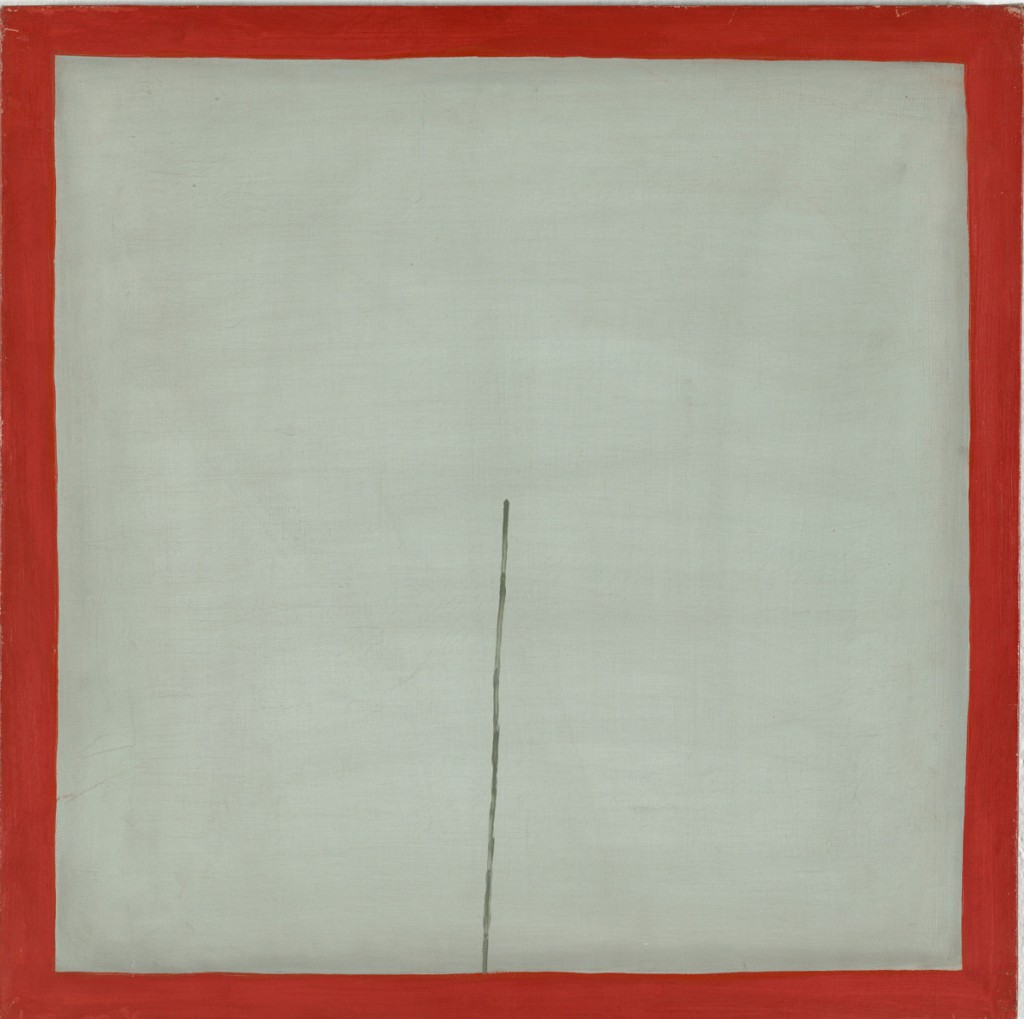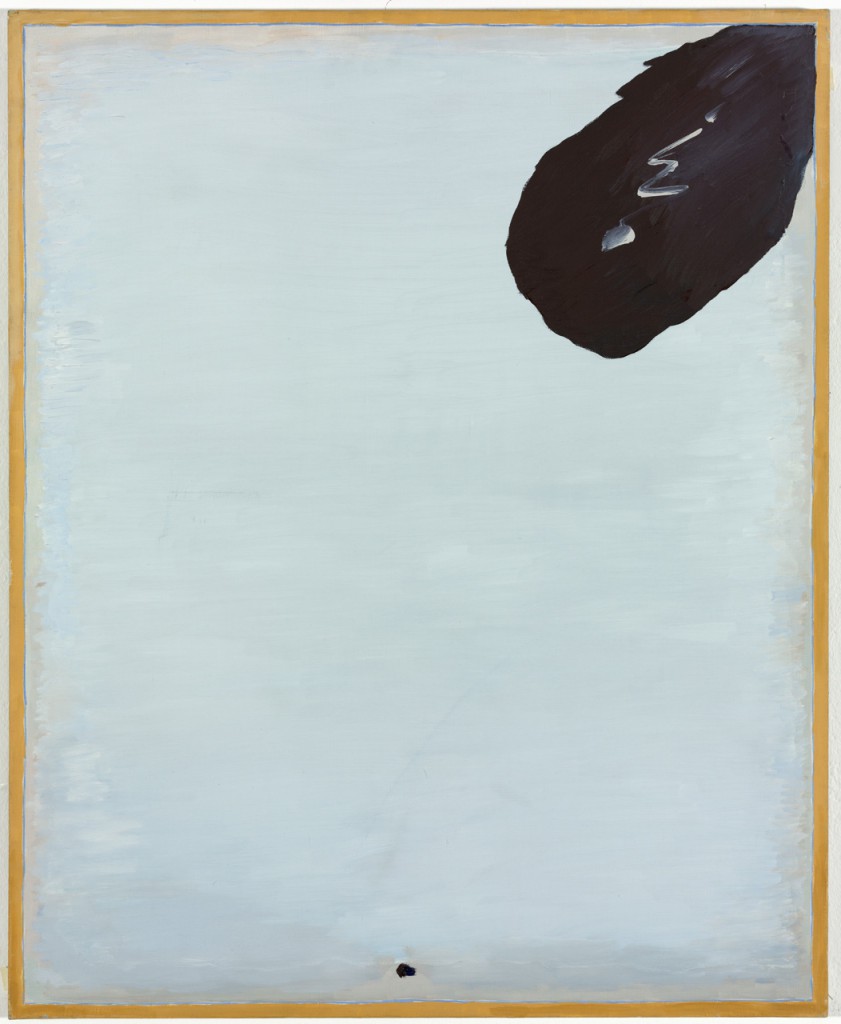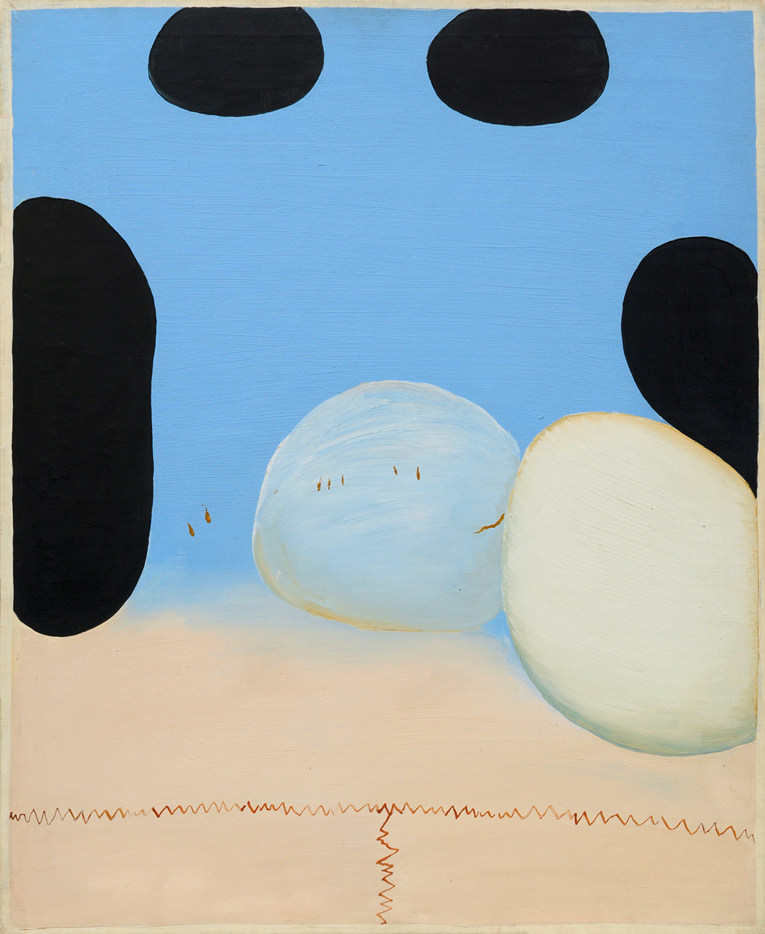Isabella Czarnowska Gallery has invited the internationally renowned curators and authors Anda Rottenberg and Ory Dessau to cooperate on the exhibition Stanisław Fijałkowski – Before and after Abstraction and to contribute to an extensively pictured catalogue published by Verlag der Buchhandlung Walther König, Cologne.
Following the revolutionary emergence of abstract art in both Western European and Russian avant-garde circles, Fijałkowski’s painting relied on the foundations of early modernism while reevaluating its ideological axioms and theoretical conclusions. His particular form of painterly abstraction avoids technical, disciplinary classification, transcending conventional, art-historical oppositions such as abstract/figurative, planar/linear, or painterly/graphic; it is both rational and cryptic, structural and gestural, narrative and speechless.

Öl auf Leinwand. 46 x 46 cm
Stanisław Fijałkowski was born in 1922 in the southeastern corner of prewar Poland, a region that was soaked with blood in World War II and is now a part of Ukraine. After wandering from one place to another during the National Socialist occupation of Poland, the young Fijałkowski ended up in Königsberg as a forced laborer. In 1945 he settled in Łódź and became a student of Władysław Strzemiński, who had been a student of Kazimir Malevich and was a founding member of the radical Constructivist movement of the 1920s and ‘30s in Poland.

Öl auf Leinwand. 100 x 81 c
The war delayed Stanisław Fijałkowski’s artistic education by six years, during the course of which he gradually developed his own personal stance with respect to the intellectual achievements of the twentieth century. He thus began his search for a new synthesis out of the postwar rubble of modernism—a synthesis that would take into account a different spectrum of values, distinguishing him from the artists before him as well as from his contemporary counterparts.

Öl auf Leinwand. 73 x 60 cm
Wiktor Ambroziewicz Museum in Chełmn, Polen
Stanisław Fijałkowski
Before and after Abstraction
30.04 – 16.07.2016
Galerie Isabella Czarnowska Berlin
Rudi-Dutschke-Str. 26
10969 Berlin